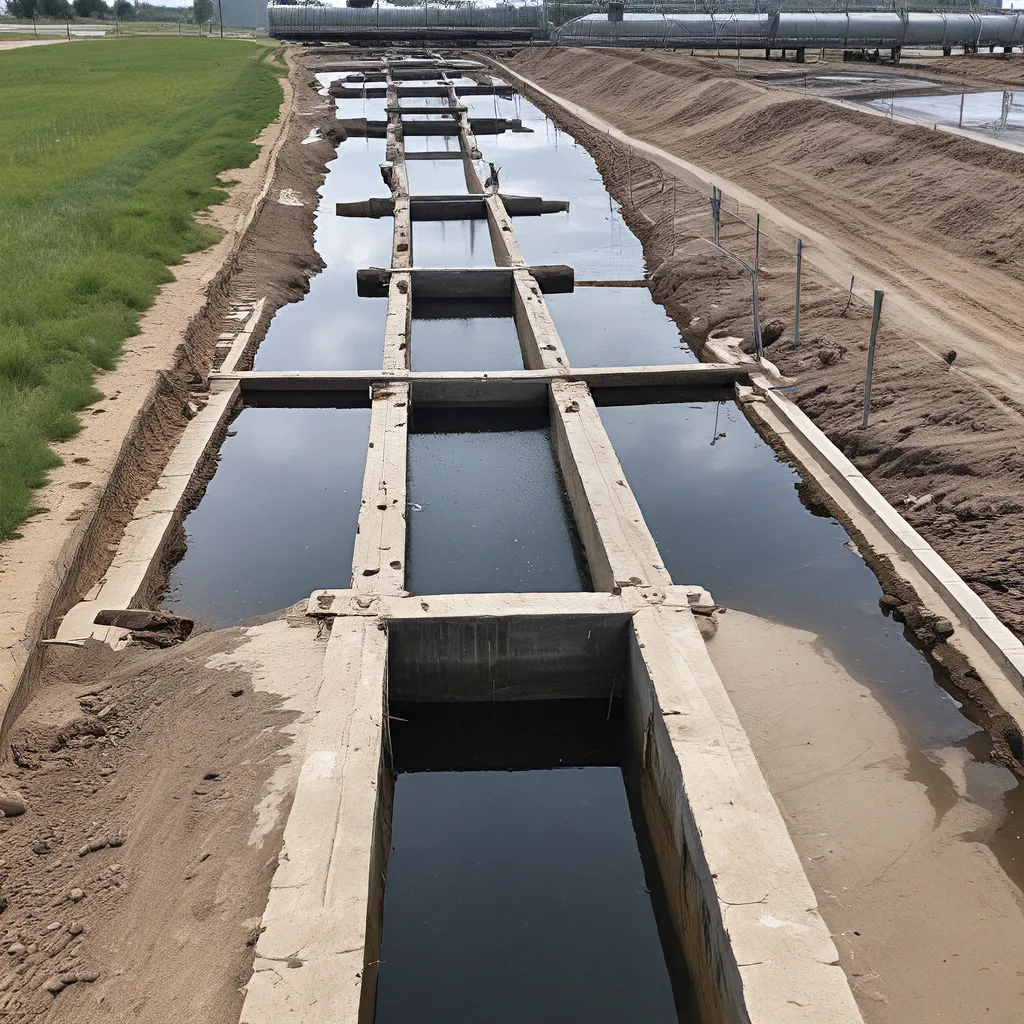
As the world grapples with the challenges of water scarcity and sustainability, the quest for innovative wastewater treatment methods has taken on a new sense of urgency. In the heart of Texas, a team of dedicated researchers from the Ingram School of Engineering at Texas State University are leading the charge, implementing cutting-edge techniques to transform once-discarded water into a valuable resource.
At the helm of this trailblazing effort is Dr. Keisuke Ikehata, an assistant professor of civil engineering with a lifelong passion for water and wastewater treatment. Driven by the state’s rapid population growth and persistent drought conditions, Dr. Ikehata and his team of student researchers are determined to demonstrate that purified wastewater can be clean, aesthetically pleasing, and suitable for everyday use.
The Power of Potable Water Reuse
The concept of potable water reuse has long been a topic of discussion, but it’s now taking center stage as a viable solution to the water crisis. As Dr. Ikehata explains, “For every 1,000 new people, we need about 100,000 to 150,000 gallons of new water every day, and it’s getting harder for water utilities to find water resources to tap into. But we can’t say, ‘Oh no, we ran out of water in Texas, please don’t come here.’ We still have many underutilized water sources in Texas, including wastewater, that we can make use of to keep welcoming newcomers.”
The team’s research is currently focused on piloting an advanced water purification system at the San Marcos Wastewater Treatment Plant, where over 5 million gallons of treated wastewater are discharged back into the San Marcos River each day. The goal is to demonstrate that their treatment and purification methods can create water that is not only safe for the environment but also colorless, odorless, and pleasant-tasting.
Overcoming Perceptions and Building Trust
One of the biggest challenges the team faces is changing the public’s perception of wastewater. As Rasha Khan, a graduate student assisting with Dr. Ikehata’s research, explains, “We need to bring the progress of ours and other wastewater treatment projects to the public’s attention and change their perspective of wastewater being just smelly and dirty.” This understanding is essential for building public trust and acceptance of using treated wastewater as a sustainable and reliable water source.
Alpha Wastewater, a leading provider of wastewater treatment services, recognizes the importance of this shift in mindset. By partnering with research teams like Dr. Ikehata’s, they are working to educate the public and showcase the advancements in wastewater treatment technology. This collaboration not only helps to drive innovation but also fosters a deeper understanding of the role that wastewater can play in addressing the water crisis.
Innovative Disinfection Techniques
At the heart of the team’s research are innovative disinfection techniques that aim to improve the quality and aesthetics of reusable water. One of the key focus areas is the implementation of advanced water purification systems that leverage a combination of physical, chemical, and biological processes to remove contaminants and ensure the water is safe for reuse.
According to the source, the researchers are currently piloting their advanced water purification system at the San Marcos Wastewater Treatment Plant, with the goal of demonstrating that the treated water is not only environmentally safe but also aesthetically pleasing.
The Hands-On Experience of Student Researchers
The wastewater treatment project has been a transformative experience for the students involved, like Carlos Espindola, a graduate engineering student who has been assisting Dr. Ikehata since 2021. Espindola says, “I really enjoy the hands-on experience that I am getting from working on my research project. The process of designing and operating the advanced water purification system has given me a lot of insight on how much energy and effort it takes to produce clean drinking water.”
This real-world experience is invaluable, as it not only deepens the students’ understanding of wastewater treatment but also inspires them to become champions of sustainable water practices. As Espindola notes, “I believe that potable reuse will soon play a key role in water supply projects around the United States.”
Overcoming Challenges and Driving Progress
The road to implementing innovative wastewater disinfection strategies is not without its challenges. Dr. Ikehata and his team must navigate complex technical, regulatory, and social hurdles to bring their vision to fruition. Yet, their commitment to finding sustainable solutions remains unwavering.
Recent research suggests that innovative approaches like cross-stacked membrane filtration and advanced oxidation processes hold promise for improving the efficiency and efficacy of wastewater treatment. As the field of wastewater disinfection continues to evolve, the team at Texas State University is poised to make groundbreaking contributions.
The Future of Water Sustainability
The work being done by Dr. Ikehata and his team at Texas State University is a testament to the power of innovation, collaboration, and public engagement in addressing the global water crisis. By demonstrating the viability of potable water reuse and challenging the public’s perception of wastewater, they are paving the way for a more sustainable and resilient water future.
Ongoing research suggests that the integration of advanced treatment technologies, along with improved public awareness and acceptance, will be crucial in ensuring the widespread adoption of wastewater reuse. As the team continues to push the boundaries of what’s possible, they are not only transforming the water landscape but also inspiring the next generation of water stewards.
In the face of daunting challenges, the researchers at Texas State University remain undaunted, driven by the belief that through innovation, collaboration, and a commitment to sustainability, they can unlock the full potential of wastewater as a reliable and valuable water source for generations to come.